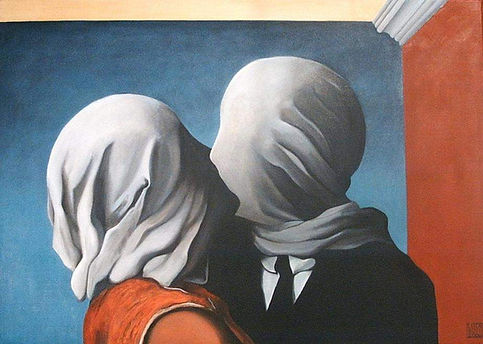The Simple and Profound Art of Love
- Sandra Castillo
- Nov 13, 2023
- 3 min read
Updated: Feb 4, 2024

It touches every life on the planet: the need to love and be loved. Its elusiveness has made it a mainstream topic of conversation for centuries and the fuel for yet another new dating website according to the digital billboard that glares at me in the dark of each morning commute to work.
The riddle that plagues us in modern times is can we stay in love once we find it? Many grew up with parents whose marriages were colorless examples of love. We wanted more authentic relationships and sacrificed much to find them.
Love anchors us. It is our constant in an ever-changing, unpredictable journey, a refuge we can count on. It affirms us in a world that’s inconsistent and often beats us down.
Then why the rocket science around the subject? So many claim it’s mysterious; others who found it are confused by its dissipation. I believe that love in all of its enigmatic abstractness is discoverable.
In my quest for answers on the topic, I came across a title from 1956; a social psychologist named Erich Fromm wrote a book titled,
The Art of Loving. Essentially, it claims “that all attempts for love are bound to fail unless one tries most actively to develop his total personality.”
If you think about it, we know a little about a whole lot of things, but not a lot about ourselves. For the most part, we’ve just done what we’ve been told, aimed to enter adulthood "hitting the ground running" financially; we didn’t do the arduous work of figuring ourselves out.
This is where the perplexity comes into play. According to Fromm, we complicate our relationships when we aim to find love before we are ready before we are living up to our own fullest potential.
So what’s the remedy?
Before someone can love another, he should acquire “true humility, courage, faith, and discipline." This looks, he says, like "loving your neighbor."
How many of us can put that on our resume of personal achievements?
And humility? Who can claim that? I saw a meme recently that read: “Humility is not thinking less of yourself, it’s thinking of yourself less.”
But, "Love thy neighbor..." begs consideration of the remainder of the mandate: “.. as thyself.” How many of us know what it means to love ourselves?
The mystery of a lasting union between souls may be
the biggest paradox of all: we’re unable to truly love anyone until we completely love ourselves.
Fromm is on to something when he points out that we have to know ourselves. If we're grounded, we won't waiver should life take a turn to the unpredictable, or the unimaginable, which too often serves as the pin that pops the balloon and drains the buoyancy out of love. This is the risk of loving: to walk hand-in-hand into an unknown future, having to trust yourself as well as another whatever comes.
Fromm’s remedy for our lack of omniscience? Give. We can only do that when we are complete; when we’ve given to ourselves first.
“Giving is the highest expression of potency.
In the very act of giving, I experience my strength, my wealth, my power. “
It is our immaterial gifts that enhance “the aliveness” of the other person which in turn gives back to the giver. And therein is the reciprocity we picture when we imagine love in our lives, the secret to everlasting romance.
“The aliveness of the other person…” I love the vibrancy that phrase evokes. Isn’t that what love is? In a world where it’s easy to feel like things deteriorate with each day, true love revives. It’s like the transfusion we all need to live and we can give it when we prioritize our individual needs and then reach out to others.
It really is that simple.

Comments